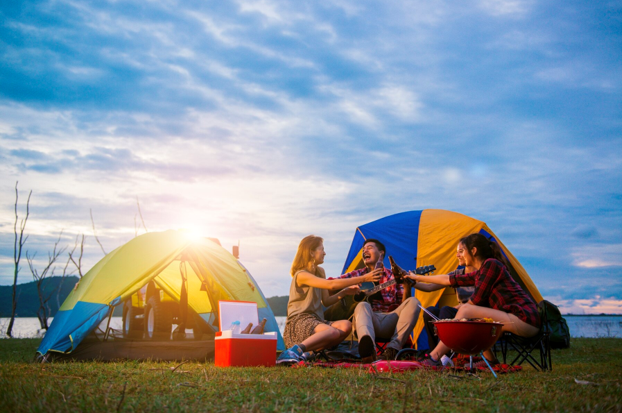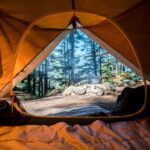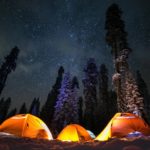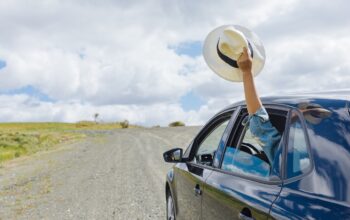Camping is one of the best outdoor activities, providing many memorable experiences you and your family or friends must share. There’s nothing quite like immersing yourselves in nature, exchanging meaningful stories, and unplugging from the overwhelming digital world. For the expert camper, these moments are cherished as opportunities to connect with the great outdoors and create lasting memories.
If you haven’t tried it, go camping with your loved ones this year. To help you, we’re providing the best safety tips that beginners must consider. Read below to learn all the critical protocols to ensure a safer camping experience.
Choose a Beginner-Friendly Site
Camping requires careful research and planning, regardless of whether you’re a beginner or not. Choosing the nearest campsite in your area is alluring, but you might find that your preferred location is filled with various elements that are not for newbie campers.
There are many factors to consider when choosing a campsite. The most important of all are your physical capabilities and limitations. Determine how well you and your group can handle numerous outdoor activities. Once you’ve gauged your group’s capacities, you must select a suitable campsite that fits your requirements.
Generally, you can choose between camping in cabins and tents. Regardless of your choice, you must prioritize a campsite’s amenities and safety features as a beginner. That way, you can enjoy a seamless camping experience with fewer worries.
Some of the best amenities or features beginners must look for include picnic tables, fire rings, and restrooms. Once you get the hang of camping, you can gradually elevate your adventures and go to more challenging areas. Before that, you must always choose locations perfect for newbies or first-timers.
Determine Emergency Services Nearby
During your research, you must identify if help is available and how close they are to the campsite. Look for services like hospitals, police stations, and fire departments. That way, you can create a more thorough evacuation plan in case something happens when camping.
Note that national parks or campsites have limited phone coverage; some may not have them. That’s why familiarizing yourself with these services is best so you can run for help during a disaster. Otherwise, look for an area or establishment where you can seek help during an emergency.
Keep an Eye on the Weather
Inclement weather is one of the many challenges you may encounter during camping. When planning your trip, the key is to be aware of recurring weather conditions in your selected location. Doing so will help you avoid harsh rain, snow, or heatwaves.
It may be difficult to avoid such an issue if your camping trip is a spur-of-the-moment plan. However, observing the weather is still helpful to protect yourself from unexpected conditions. The good news is that you can access weather forecasts across different sources online.
Use this information to equip your group with all the essentials, like sunscreens or winter coats, to help you against various scenarios.
Be Aware of Wildlife
Another issue you must watch out for when camping is the threat of wildlife. Many of these critters are harmless. However, some of them are not friendly to campers.
When researching, understanding the common wildlife in the area is vital, especially for your first camping experience. As beginners, it’s best to avoid areas with many dangerous animals.
If encountering wildlife is unavoidable, knowing the best practices to protect yourself or fend them off is best. For instance, store your food in the car or a sturdy food storage locker to prevent attracting unwanted wildlife. You must also avoid feeding them, regardless of whether you think they’re harmless.
Doing so will ensure you don’t encourage more interactions with them or other potentially dangerous animals. If you come in contact with one, wash your hands with soap and water before touching your food or face.
Additionally, it’s essential to protect your skin from numerous insect bites. Always use insect repellent and wear long-sleeved tops to prevent that from happening. You must also ensure that your tents or cabins have fly screens. Plus, avoid having still or standing water around the campsite to prevent attracting pests like mosquitoes.
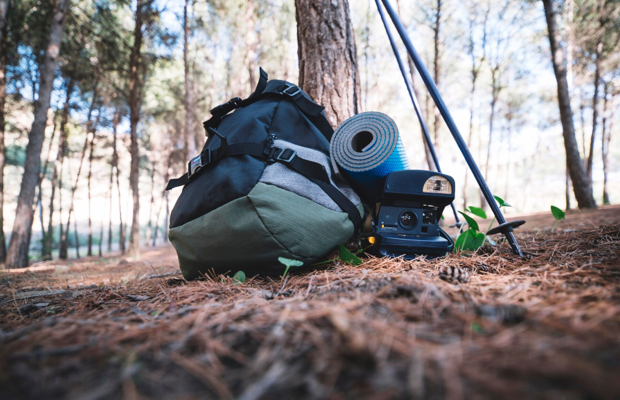
Bring Plenty of Food and Water
Staying hydrated outdoors is crucial for campers to remain energized and alert for any danger from their surroundings. Unfortunately, many campsites are not connected to a clean water supply. They may have rainwater tanks, but they’re not suitable for drinking because they’re not treated. Because of that, you must always bring plenty of water for drinking and washing with you on your trip.
Moreover, you must also pack enough food for the group. As beginners, you must never rely on your surroundings for food, whether from hunting, fishing, or picking fruits. If you want to take the challenge of foraging for food for your next camping trip, take the time to train first. Know that the forest is filled with poisonous plants and wild animals that can overpower you if you try to attack them.
Carry All the Essential Equipment
The excitement of going camping can make you overlook various safety essentials. These include first aid kits, navigation items, communication devices, and multi-tools. Forgetting these tools will put your group in more harm, especially if disaster strikes.
You must also carry a headlamp or flashlight to help your group navigate the dark and spot any potential danger. Many campers opt for something powerful like rifle lights to get more precise coverage in the forest. Of course, remember to bring extra batteries with you.
Have a Memorable and Safe Camping Experience
Prioritizing safety on your outdoor adventure is the only way to ensure a memorable camping experience. With the tips mentioned above, you can anticipate and mitigate risks. Plus, you can create a seamless exploration of your desired campsite.
Start by conducting thorough research and planning before your trip. Equip your group with the right tools and knowledge on spotting and preventing disasters or other outdoor threats.
Lastly, the most important tip you must never forget is to have fun on one of many camping trips with your loved ones.
Related Posts
Hi there! I’m Sethu, your go-to guy for all things tech, travel, internet, movies, and business tips. I love sharing insights and stories that make life more interesting. Let’s explore the world together, one article at a time!
